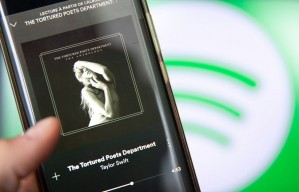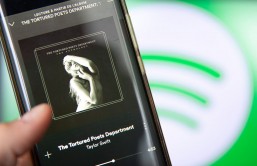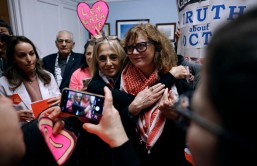Just 19 percent of Americans trust the government always or most of the time, "among the lowest levels in the past half-century," according to a new poll from Pew Research Center, which also found that 27 percent of registered voters view the government as an enemy.
The poll results are in stark contrast to the level of trust found in a similar survey from 1964 when 77 percent of Americans said they trusted the government always or most of the time. Shortly after the 9/11 terrorist attacks, 60 percent of Americans said they trusted the government, noted Voice of America.
But since then, economic uncertainty, perpetual war, energy crisis, administrative breakdowns, personnel problems, computer hacking and partisan gridlock have led to a sharp decline in trust in politicians and the government, according to NPR.
Now, only 20 percent believe federal programs are well run, and 55 percent think the average American could do a better job at "solving national problems" than elected officials.
That cynicism likely stems in part from the 76 percent of respondents who believe that money "has a greater influence on politics and elected officials today than in the past."
According to 64 percent of respondents, many good candidates are discouraged from running for president due to the impossible odds they face without millions of dollars in the bank, according to Pew.
Confidence in the collective political wisdom of fellow Americans is even lower, with 63 percent saying they have little or no confidence in the wisdom of the American people and 34 percent saying they have a very great deal or good deal of confidence.
Elected officials received the lowest marks for honesty with only 29 percent of respondents describing elected officials as honest, compared with 45 percent who said the same for business leaders and 69 percent who said the same about the average American.
Nearly the same percentage of Republicans and Democrats view elected officials as honest, intelligent and selfish, noted Pew. Republicans, however, were more likely to believe that regular Americans are capable of solving the country's problems, 62 percent to 49 percent.
Republicans were also much more likely to prefer smaller government, 80 percent, compared to just 31 percent of Democrats and Democratic leaners who said the same.
Republicans were also three times as likely as Democrats to say they are "angry" with the government — 32 percent to 12 percent. The gap was even wider among Republicans and Democrats who said they vote often and follow politics — 42 percent to 11 percent. Thirty-five percent of Republicans said they view the government as an enemy, while only 12 percent of Democrats said the same, as did 34 percent of independents.
Eighty-nine percent of Republicans said they rarely, if ever, trust the government, while 72 percent of Democrats said the same.
The results demonstrate that widespread cynicism about the government is not a partisan issue, and help explain the insurrection of anti-establishment candidates such as Republican Donald Trump and Sen. Bernie Sanders, who is calling for a political revolution, according to CNN.
A majority of respondents from both parties were also supportive of government involvement in dealing with a number of issues, including terrorism, natural disasters, ensuring safe food and medicine, managing immigration, protecting the environment, strengthening the economy, maintaining infrastructure, ensuring quality education, and setting workplace standards.
Overall, Republicans were less likely to support government involvement in practically every issue.
The sharpest partisan divide was over the question of whether the government should be involved in ensuring access to health care. Only 34 percent of Republicans said the government should be involved in ensuring access, compared to 83 percent of Democrats. On the question of the government helping people get out of poverty, 34 percent of Republicans supported government involvement, as did 72 percent of Democrats.








